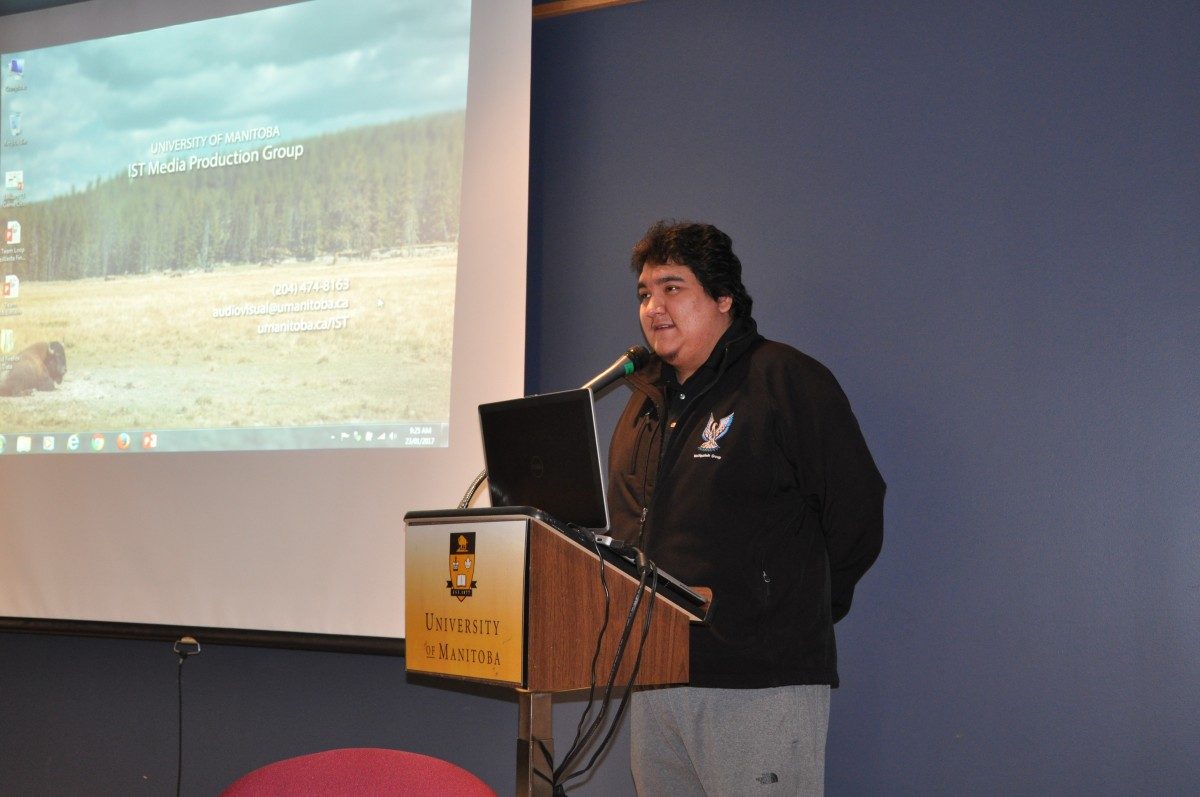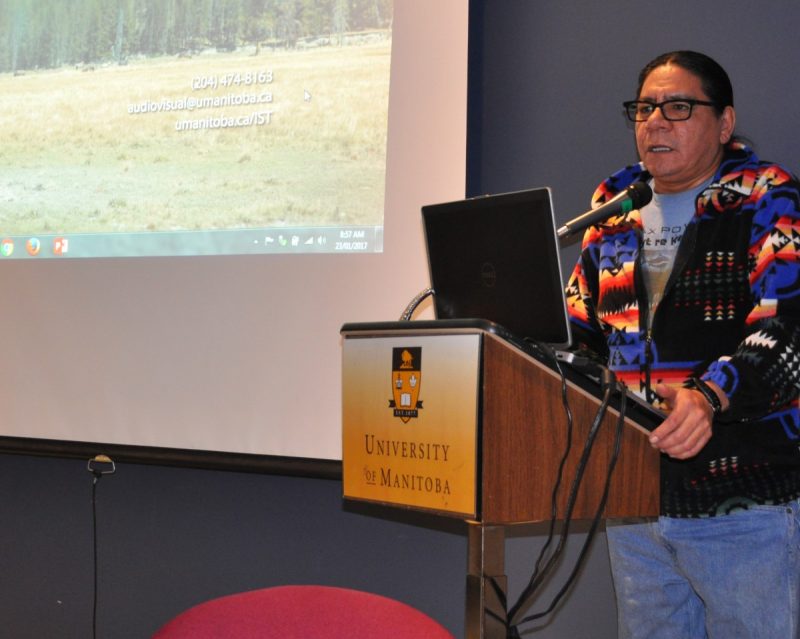
Morrison Ross shares his story at the suicide prevention workshop.
Bringing Light into Darkness
Most days, Morrison Ross crawls into bed well after midnight. If he gets four hours of sleep, he considers himself lucky.
Ross is a youth worker at Cross Lake Cree Nation, Pimicikamak. When he’s not spending time with the young people on his reserve, helping kids stay active and offering guidance and encouragement, he’s waiting for the phone to ring. Most of the time that happens late at night, when the despair and hopelessness start to rise and things seem most bleak.
Ross is there when the kids call. He’s only 20 years old himself, but he doesn’t want to see even one more member of his community fall through the cracks. “I share deeply in their lives,” says Ross. “I get too attached, but nobody is around them like I am. The youth are my happiness.”
“Aboriginal youth are five to six times more likely to die by suicide than their non-aboriginal counterparts,” said Elaine Mordoch, event organizer and associate professor at the College of Nursing, Rady Faculty of Health Sciences. “As a profession, we need to understand why this is happening in the communities around us.” That’s why she assembled a committee to bring key members of the Pimicikamak community to speak at a suicide prevention workshop, funded by the College of Nursing Endowment Fund and Winnipeg Suicide Prevention Network, held Jan. 23 at St. John’s College.

Elder David Blacksmith
Called “Kiskisi Paminamatowin- A Suicide Prevention Workshop: Lessons from Cross Lake Cree Nation,” the event was created to bring attention back to the ongoing needs of the community after a wave of suicides in 2016. The Cree name means a workshop where we look after each other. “Time passes,” said Mordoch. “Their story isn’t in the spotlight anymore. But this isn’t a problem that just goes away—there are people at Pimicikamak who are still struggling today with the same issues they were facing then.”
The list is a long one. Unemployment. Substance abuse. Broken family structures. Environmental devastation. Systemic racism.
Speakers, all from Cross Lake themselves, outlined in painful detail the problems that led to this community-wide mental health crisis. Nearly 100 nursing students, faculty and staff, as well as community members, listened in silence as the history of the community’s present situation unfolded at the day-long event. But among the stories of despair, there is also hope, with leaders like Elder David Blacksmith encouraging a multi-pronged approach with Indigenous values at the heart.
“For me it’s important that we look at the traditional Aboriginal aspect of how we need to handle things,” said Blacksmith. He describes medicine, mental health care and spirituality as a complementary mix to help heal his community. But at the centre is a return to the old values that sustained their people for thousands of years. “You can give drugs for mental well-being and you can have community strategies, but at the same time, they need their traditional spirituality. If we don’t have that, we’re not going to make it.”
David Muswaggon, a community leader and council member who spoke in the morning, is tackling the problem of suicide in Pimicikamak via sports and a baseball team full of role models. He was named Softball Canada’s 2015 Home Run Sports Coach of the Year after years of coaching the U-16 Pimicikamak Thunder from Cross Lake – including leading them to two Western Canada softball champions in 2014 and 2015. Muswaggon’s important contribution to bringing light to the darkness that has permeated Pimicikamak during its 2016 suicide crisis is highlighted in a TSN produced video: The Sound of Thunder. It was released last week in conjunction with Bell Let’s Talk Day.
Mordoch calls the event a success, not only because of the powerful messages speakers brought to the event, but because it reminded nursing students of the need to be respectful of the knowledge other communities bring, “People from Cross Lake understand their situation better than we do,” said Mordoch. “It’s not for us to tell them the way forward.”
“Cultural safety is woven into the curriculum of colleges across the Rady Faculty of Health Sciences,” agreed Beverly O’Connell, Dean, College of Nursing. “Events like this offer an important opportunity to reinforce the values of cultural sensitivity and health equity with our students.”






